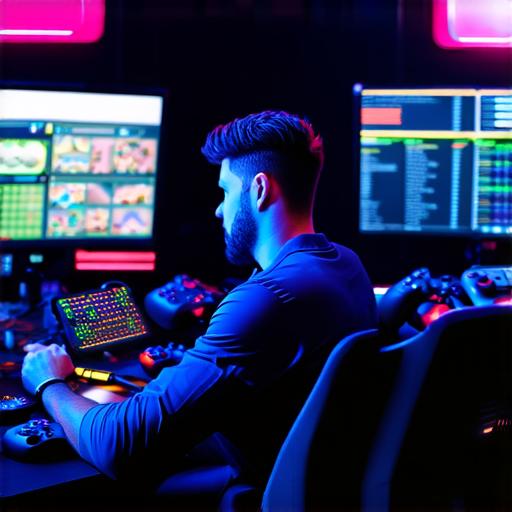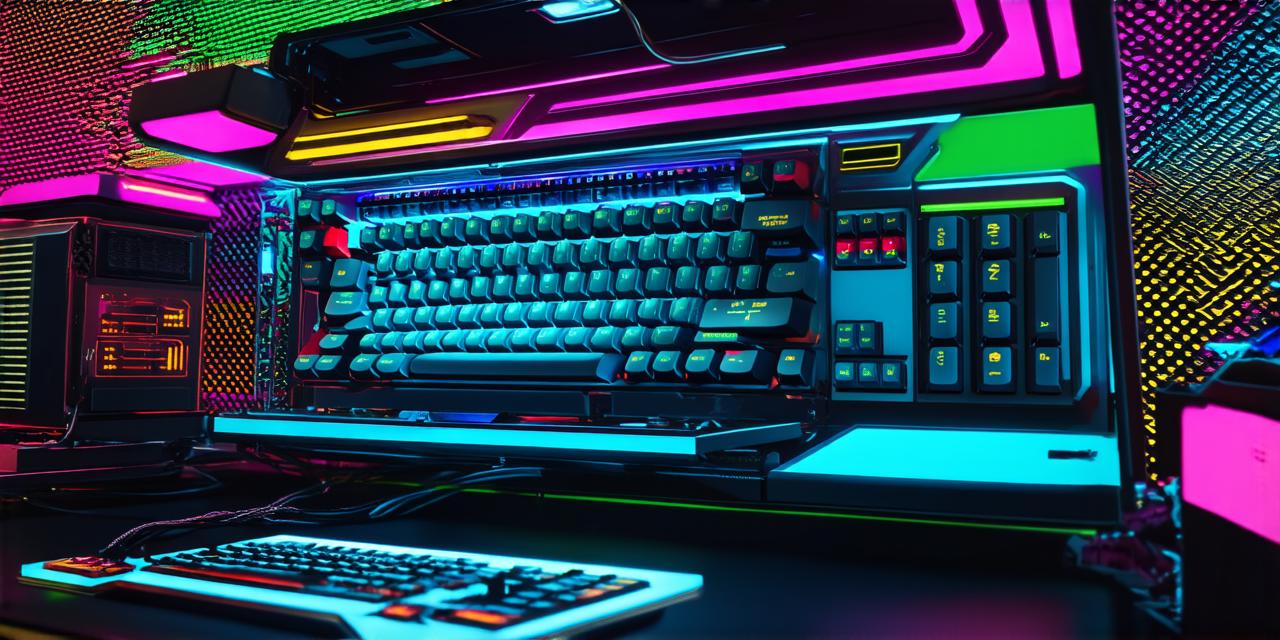Introduction
The world of video games is constantly evolving, and with it, the role of the game designer. Video game designers are responsible for creating immersive and engaging gaming experiences that captivate players around the globe. However, becoming a successful game designer requires more than just creativity and passion.
Education and Skills
Before pursuing a career in game design, one must have a solid foundation of knowledge and skills. A degree in game design, computer science, or a related field is often required for entry-level positions. However, there are many self-taught designers who have made it big in the industry through sheer passion and dedication.
In addition to formal education, game designers must also possess a wide range of skills such as programming, art, sound design, and project management. It’s important to note that not all game designers work exclusively in one area; many are cross-trained in multiple disciplines.
Case Study: The Role of Education in Game Design
One excellent example of the importance of education in game design is the story of Markus Persson, better known as Minecraft creator. Despite not having a formal degree in game design, Persson’s passion for coding and his ability to learn quickly from online resources allowed him to create one of the most successful games of all time.
While education can be helpful, it is not always necessary. Many successful game designers have found success without formal training, such as Shigeru Miyamoto, the creator of Super Mario. However, having a strong foundation in knowledge and skills will greatly increase your chances of success.
Experience and Portfolio
Apart from education, experience and a solid portfolio are crucial components for game designers looking to break into the industry. Game design is a highly competitive field, and employers want to see that you have real-world experience in creating games.

This could include internships, volunteer work, or even your own personal projects. A strong portfolio showcasing your skills and creativity will also help set you apart from other candidates. Include screenshots, videos, and any other relevant materials that demonstrate your abilities as a game designer.
Case Study: The Importance of Experience in Game Design
One excellent example of the importance of experience in game design is the story of Gabe Newell, co-founder of Valve Corporation. Newell began his career in game development by working on the game “Half-Life” while still in high school. His experience and passion for game design helped him create one of the most successful gaming companies in history.
Networking and Collaboration
Networking and collaboration are also essential skills for game designers looking to break into the industry. The gaming community is a close-knit one, and building relationships with other developers, artists, and producers can open doors and provide valuable opportunities.
Join online communities such as Reddit’s r/gamedev or attend game design conferences to connect with like-minded individuals. Collaboration on personal projects or volunteering for community events are also great ways to gain experience and build a network.
Case Study: The Power of Networking in Game Design
One excellent example of the power of networking in game design is the story of Clifford Stern, co-founder of id Software. Stern’s early experience in the gaming industry was made possible through his connections with other developers, which eventually led to the creation of Doom and Quake.
Summary
Becoming a successful video game designer requires a combination of education, skills, experience, and collaboration. While there is no one-size-fits-all approach, those who are passionate about creating immersive gaming experiences and willing to put in the hard work will undoubtedly find success in this competitive field.
FAQs
Q: Do I need a formal degree to become a game designer?
A: While many game designers have degrees, it’s not always necessary. A combination of education, skills, experience, and collaboration can also lead to success in the industry.
Q: How can I gain experience as a game designer?
A: Internships, volunteer work, personal projects, and attending game design conferences are all excellent ways to gain experience as a game designer. Building relationships with other developers, artists, and producers is also essential for collaboration and opportunities.
Q: What skills do I need to become a successful game designer?
A: Game designers must possess a wide range of skills such as programming, art, sound design, and project management.
